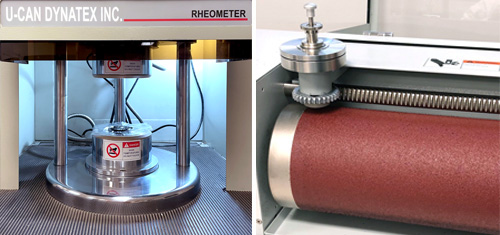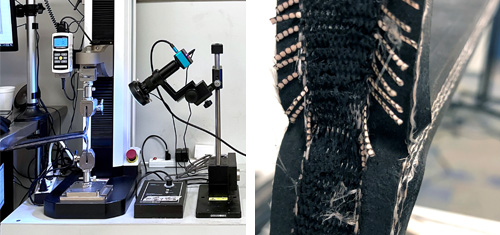Belt Compatability Testing Services
Belt compatibility testing services assess the interaction between conveyor belts and ALMEX-FUSION rubber compounds/adhesives to ensure optimal performance and durability in industrial applications.
Features
Features
- Material compatibility testing: Evaluating the compatibility of the conveyor belt material with rubber compounds and adhesives to prevent chemical reactions, degradation, or bond failures.
- Adhesion testing: Assessing the strength and durability of adhesive bonds between the conveyor belt material and rubber compounds, ensuring proper adhesion and resistance to delamination.
- Chemical resistance testing: Determining the resistance of the conveyor belt material to chemicals present in rubber compounds and adhesives, preventing degradation or weakening of the belt material.
- Mechanical compatibility testing: Assessing the impact of rubber compounds and adhesives on the mechanical properties of the conveyor belt material, such as tensile strength, flexibility, and abrasion resistance, to ensure compatibility and maintain belt performance.
- Performance evaluation: Testing the performance of the conveyor belt system after integration with rubber compounds and adhesives to ensure optimal operation, reliability, and longevity in industrial applications.
Specifications
By conducting comprehensive belt compatibility testing, manufacturers, conveyor system designers, and maintenance personnel can identify potential issues early, select appropriate materials and bonding agents, and optimize conveyor belt performance in various industrial environments. Conveyor belt specifications differ between North America and the rest of the world. Knowledge and experience about which belt is best suited for your application is a skill that few have.
Please email us or call 1-800-Splice to start the discussion.
Related Items






